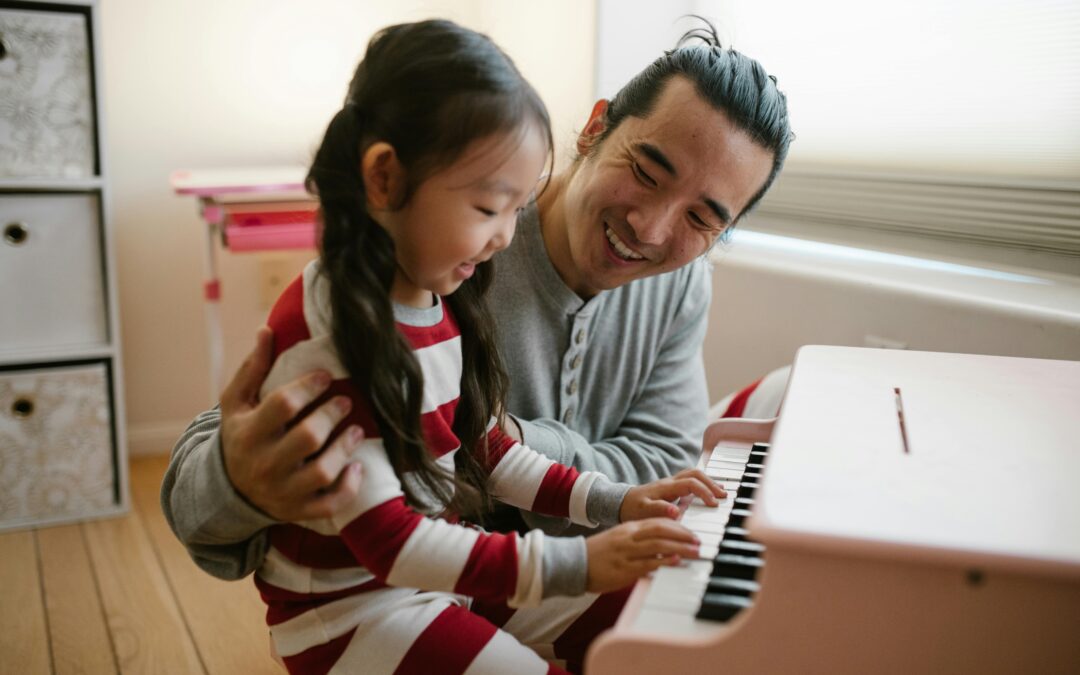
Did you know that learning the piano can also strengthen your child’s math skills? It might sound surprising, but there’s a strong connection between music and math. Learning to play the piano can support your child’s cognitive development in ways that go far beyond the music room.
The Link Between Music and Mathematics
Music and math share a deep relationship. Both involve patterns, structure, and sequencing. When your child learns to read music, they’re interpreting notes while also working with fractions, counting rhythms, and identifying patterns. These are all foundational math skills.
Piano students constantly practice timing, which involves dividing beats into halves, quarters, eighths, and more. This process mirrors how children learn fractions and division in school. Without even realizing it, your child is strengthening their math fluency every time they sit down at the piano.
Improved Problem-Solving and Critical Thinking
Reading music and translating it into physical movement requires kids to think several steps ahead. They anticipate rhythm changes, recognize patterns, and adjust their playing in real time. This kind of mental flexibility is similar to solving a math problem, where your child must apply formulas or test out different strategies to find the right answer.
Problem-solving in music also teaches persistence. When a student struggles with a tricky passage in a piece, they must figure out what went wrong and how to fix it. This mindset translates easily into math homework, where finding the right solution takes patience and perseverance.
Stronger Memory and Concentration
Playing the piano builds both short-term and long-term memory. Kids must remember note sequences, finger placements, and musical dynamics while staying focused from the beginning of a piece to the end. This kind of focused attention is exactly what they need when tackling multi-step math problems.
Students who study music often outperform their peers in memory-based tasks. This means better retention of math facts, formulas, and procedures. When your child develops the ability to focus during practice sessions, that skill naturally carries over to the classroom.
Boosting Confidence in Learning
As children make progress on the piano, they see the results of their hard work and dedication. Mastering a new song can feel just as rewarding as solving a challenging math problem. This success builds confidence and a positive attitude toward learning.
Many kids who struggle with math can feel defeated or frustrated. Piano provides a different pathway to achievement. When students discover they can succeed in music, it often helps them feel more capable of tackling other subjects, including math. This emotional boost can make a world of difference.
Real-Life Application of Mathematical Concepts
Learning piano brings abstract math concepts to life. For example, understanding how time signatures work in music helps kids grasp the idea of ratios and proportions. Playing scales teaches them about patterns and intervals. Reading notes on the staff introduces ideas related to spatial awareness and graphing.
These real-life applications make math feel more tangible and less intimidating. When your child sees how math functions in music, they start to view it as a useful and meaningful tool, not just something they do at school.
At The Music Workshop, we make learning fun, engaging, and educational. Get in touch with us today to learn more about our piano programs and how we can help your child thrive in both music and math.

